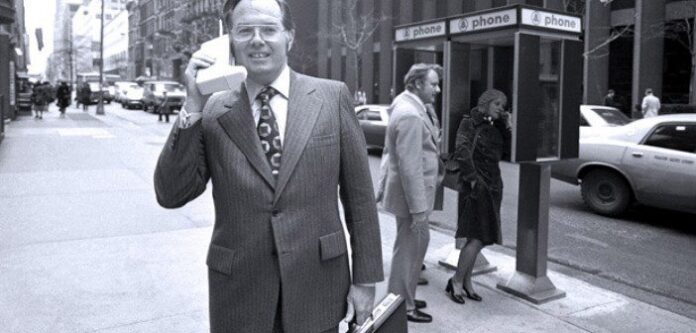Editor’s Note: RCR Wireless News goes all in for “Throwback Thursdays,” tapping into our archives to resuscitate the top headlines from the past. Fire up the time machine, put on those sepia-tinted shades, set the date for #TBT and enjoy the memories!
Mobile’s future is … fun and games?
CHESTERFIELD, Miss.-While industry leaders have knocked around the idea of a killer application in wireless for years, a new report from Datacomm Research Company and Phoenician Ventures pegs it squarely on mobile games and handsets with color screens. “Colorful mobile games, polyphonic ring tones and applications/content for over-the-air download will spread like wildfire as 2.5 and 3G services roll out,” said Ira Brodsky, Datacomm’s president. “Leading consumer brands will pounce on mobile entertainment as a new advertising medium.” … Read more
Camera phone sales surge in Japan
TOKYO-Shipments of mobile phones with cameras surged from 6 million units in 2001 to 23 million units in 2003 in Japan, according to a survey conducted by a research institute. Mobile phones with cameras have become popular in Japan after J-Phone, a Vodafone Group company, released the first such handset through its “sha-mail” service last year. Sha means taking a picture in Japanese. To ride on the big boom, both KDDI and NTT DoCoMo launched their own mobile phones with cameras. NTT DoCoMo on 17 July launched two new mobile phones with cameras, one manufactured by Fujitsu and the other manufactured by Mitsubishi Electric. Yano Research Institute, a major market research company in Japan, said in a report released on 15 July that shipments of camera-enabled mobile phones will surge in Japan due to NTT DoCoMo’s entrance into the market. … Read more
Cingular launches GSM in NYC
NEW YORK-Cingular Wireless officially launched its GSM service in New York City today, placing the nation’s second-largest carrier in 43 of the top 50 markets nationwide and covering 217 million potential customers. The service uses VoiceStream Wireless’ GSM/General Packet Radio Service (GPRS) network as part of the carriers’ previously announced network-sharing agreement. … Read more
China Mobile expects to hit 50 billion SMS in a year
BEIJING-Li Yue, vice president of China Mobile, announced at the GSM China 2002 conference that China Mobile’s customers are expected to send 50 billion short messages this year, up from 15.9 billion last year. Customers of rival China Unicom sent 3 billion messages last year. China Mobile expects 5 billion yuan (US$604 million) in revenue this year from its SMS services. … Read more
China’s largest paging manufacturer stops production
BEIJING-Ningbo Bird, China’s largest manufacturer of pagers, phased out its pager production this month. When the paging business was at its peak in 2000, Ningbo Bird’s market share was second only to Motorola. Bird also operated paging services in 14 cities. The total number of paging users in China dropped from 43.84 million at the end of 2000 to 25 million by the end of May. According to industry experts, the paging business in China is expected to disappear. … Read more
In Canada, airport vs. MNOs
TORONTO-Airports across North America are closely watching the battle between Canada’s four wireless carriers and Pearson International Airport that has left travelers with reduced levels of cell-phone service. Industry sources said the disagreement between the Greater Toronto Airport Authority and the four carriers is unprecedented and could determine how other airports in Canada and the United States strike contracts with mobile-phone companies. This week, the airport authority started to block cell-phone reception in the terminals while wireless operators fought back by redirecting nearby transmitters. The dispute at Pearson centers on how much Bell Mobility, Telus Mobility, Rogers Wireless and Microcell Telecommunications are being asked to pay to upgrade wireless service and for lease fees for keeping signal-boosting equipment on airport premises. Under an expired five-year contract, each carrier paid $13,000 a year in lease fees and collectively spent more than $5.3 million on infrastructure. The airport authority wants to boost that fee to $65,800 with a significant investment from the carriers to provide wireless coverage to 100 percent of the airport. … Read more
Canadian wireless users expected to double in four years
TORONTO-The number of Canadians using mobile phones is expected to more than double during the next four years, with the biggest growth spurt in the teenage and corporate applications markets, according to a new IDC Canada report. IDC forecasted that wireless penetration in Canada will jump to 70.2 percent, or 22.6 million users, by 2006 compared with 34.4 percent, or 10.7 million users, in 2001. IDC also expects the size of the wireless market to increase 42 percent to C$9.3 billion (US$6 billion) from C$6.1 billion (US$4 billion). A big market for Canada’s four major wireless carriers-Rogers AT&T, Microcell, Telus Mobility and Bell Mobility-is the 13- to 19-year-old segment, which constitutes 20 percent of the current market, but is growing at twice the overall rate. … Read more
Check out the RCR Wireless News Archives for more stories from the past.

